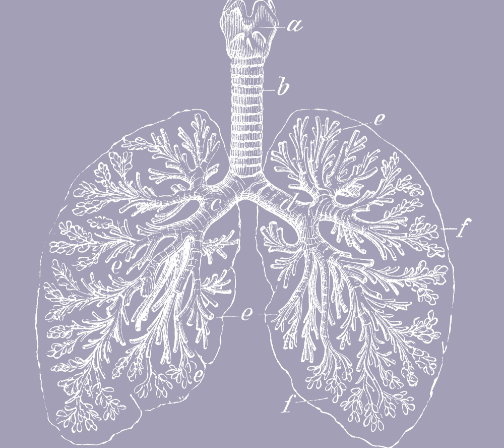Featured Documents

Limiting the spread of Covid-19 in Africa: one size mitigation strategies do not fit all countries
Since the emergence of COVID-19 on the continent, African governments have had to decide whether, in addition to following WHO recommendations to test widely, contact trace, and quarantine, they would adopt draconian measures such as total lockdowns, stay at home to save lives campaigns, and travel and movement restrictions as has been done in European and Asian countries.

Africa faces difficult choices in responding to Covid-19
Coronavirus disease 2019 (COVID-19) is now established in Africa. To flatten the curve, some African governments have imposed stringent public health measures (lockdown) based on physical distancing to reduce transmission. However, the safety of this approach in poor communities has not been evaluated, and it is plausible that lives lost to lockdown could exceed those saved from COVID-19.

Africa prepares for coronavirus
With cases of novel coronavirus spreading worldwide, governments and institutions are getting ready for the first cases in Africa. On Jan 30, WHO Director-General Dr Tedros Adhanom Ghebreyesus declared that the novel coronavirus (2019-nCoV) epidemic, centred in China, was a public health emergency of international concern.

Preparedness and vulnerability of African countries against importations of Covid-19: a modelling study
Many countries in Africa are stepping up their preparedness to detect and cope with COVID-19 importations. Resources, intensified surveillance, and capacity building should be urgently prioritised in countries with moderate risk that might be ill-prepared to detect imported cases and to limit onward transmission.

Research on current and emerging diagnostic tests available for the novel Covid-19 global pandemic
On March 11, 2020 the World Health Organization (WHO) upgraded the status of the coronavirus disease 2019 (COVID-19) outbreak from epidemic to a global pandemic. Several rapid diagnostic tests have been developed at an astonishing pace; however, COVID-19 requires more highly specific rapid point-of-care diagnostic tests.

Research on Covid-19: Are Africa’s diagnostic challenges blunting response effectiveness?
We speculate that while African nations are currently experiencing much lower rates of COVID-19 relative to other continents, their significantly lower testing rates may grossly underestimate incidence rates. Failure to grasp the true picture may mean crucial windows of opportunity shut unutilized, while limited resources are not deployed to maximum effect.

Leveraging investments in Ebola preparedness for Covid-19 in Sub-Saharan Africa
Countries in Eastern and Central Africa have been on high alert since mid-2018 in anticipation of regional spread of the Ebola virus from the Democratic Republic of Congo. With a new threat on the horizon, African countries have an opportunity to leverage the existing capacities for Ebola preparedness to brace for the imminent threat.

Covid-19 Pandemic in West Africa
Although some west African countries have measures in place from the 2014 Ebola epidemic, the region includes some of the poorest countries in the world (according to World Bank data, nine of the 25 poorest countries are in the region). In addition, many west African countries have poorly resourced health systems, rendering them unable to quickly scale up an epidemic response.

Africa in the Path of Covid-19
I n South Sudan, all schools and churches have been closed to promote social distancing. In South Africa, President Cyril Ramaphosa declared a 3-week total lockdown of his country’s 57 million citizens. In Uganda, pop star Bobi Wine’s newly recorded song “Sensitise to Sanitise” is playing on radios throughout the country.

Let Africa into the market for Covid-19 diagnostics
Africa is boosting its capacity to respond to COVID-19, but lack of solidarity will cost lives. African countries are used to widespread testing for pathogens such as HIV, tuberculosis and malaria. This expertise can easily be adapted for SARS-CoV-2 testing.

Looming threat of Covid-19 infection in Africa: act collectively, and fast
The greatest concern for public health experts is whether COVID-19 will become a pandemic, with sustained year-round transmission.. What might happen to Africa—where most countries have weak health-care systems, including inadequate surveillance and laboratory capacity, scarcity of public health human resources, and limited financial means—if a pandemic occurs?

Spread of SARS-CoV-2 Coronavirus likely to be constrained by climate
The predecessor SARS-CoV was linked to similar climate conditions. Should the spread of SARS CoV-2 continue to follow current trends, a worst-case scenario of synchronous global pandemic is improbable. More probable is the emergence of asynchronous seasonal global outbreaks much like other respiratory diseases.

A pragmatic inquiry into employee's lived experiences in relation to Covid-19 lockdown in South Africa
The outbreak of COVID-19 in South Africa has brought about many socio-economic challenges, affecting everyone in all sectors of society. As the government proactively introduced steps to deal with the progression of the COVID-19 in South Africa, some of these measures included a total country lock-down. One of the most severely impacted sectors of society was employees from different organizations.

The cause of panic at the outbreak of Covid-19 in South Africa - A comparative analysis of similar outbreak in China and New York
Lack of proper messaging at an outbreak of a novel disease causes panic with more serious damaging impacts on livelihoods, social-fabric of communities, economic landscapes, and political stability. There have been notable high levels of panic in South Africa and the globe with regard to the outbreak of COVID-19.

Covid-19 and Food Security in Africa: Building more resilient food systems
The COVID-19 pandemic has exposed the fragility of our food systems. Despite increased efficiencies in producing and supplying large volumes of food, our current food systems have generated multiple adverse outcomes comprising high greenhouse gas emissions, persistent hunger, and livelihood stress for farmers around the world.

Covid-19 in Africa, the spread and response
Given the current trends in incidence and underlying healthcare systems vulnerabilities, Africa could become the next epicenter of the Covid-19 pandemic. As the pandemic transitions to more widespread community transmission, how can the lessons learned thus far be consolidated to effectively curb the spread of Covid-19?

The role of Remdesivir in South Africa: preventing Covid-19 deaths through increasing ICU capacity
Countries such as South Africa have limited intensive care unit (ICU) capacity to handle the expected number of patients with COVID-19 requiring ICU care. Remdesivir can prevent deaths in countries such as South Africa by decreasing the number of days people spend in ICU, therefore freeing up ICU bed capacity.

Covid-19 in Africa: no room for complacency
High numbers of deaths were expected in the region due to fragile health systems, lack of access to preventive measures, barriers to testing, and potentially vulnerable populations. But, according to WHO, Africa is the least affected region globally, with 1·5% of the world's reported COVID-19 cases and 0·1% of the world's deaths.


Subscribe
Data delivered to your inbox. Keep up with the latest developments.
How should Africa, with its fragile healthcare systems and large informal economies tailor global strategies for fighting Covid-19 to ensure they are feasible and effective locally? African policymakers and health agencies need evidence-based insights with strong local context to make informed decisions. Outbreak.AFRICA seeks to help by giving actionable data and expert insights.
This Code for Africa initiative was made possible with support from the Pulitzer Center on Crisis Reporting.






